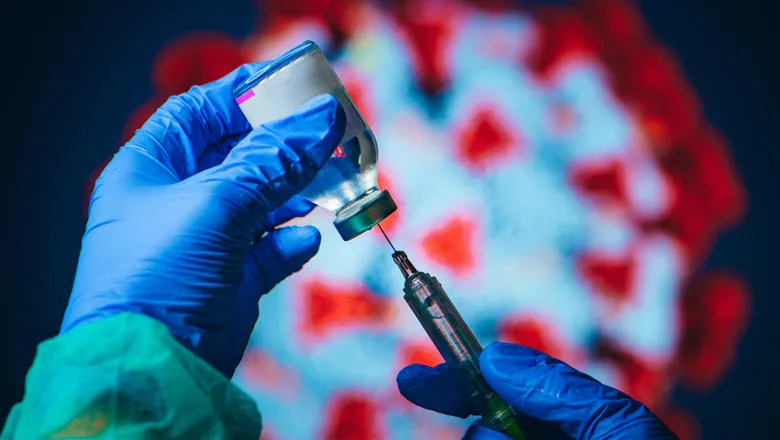The team has conceived and created the vision of the BiaB, whilst researching RNA vaccine manufacture in the last four years. Members of the team from both academia and industry have pioneered all the core aspects of the proposed technology, including cutting edge medicine and molecular biology, formulation science, manufacturing, saRNA/mRNA development, process system digital twins and process intensification for RNA manufacturing."
07 December 2021
King's engineer leading research project on rapid vaccine manufacture
WellcomeLEAP grant for rapid vaccine manufacture

Professor Harris Makatsoris, Professor of Sustainable Manufacturing Systems in the Department of Engineering, has secured funding under the WellcomeLEAP R3 project for work to speed up the manufacture of RNA therapies including vaccines.
The Biofoundry-in-a-Box (BiaB) is a modular, flexible and automated microfactory that enables rapid and on-demand access to a wide variety of RNA-based drug products. These include mRNA and saRNA products. The BiaB represents an entirely new manufacturing approach to increase the diversity, number and manufacturing pace of RNA-based products. Each of these units has been conceived to be capable for multi-product manufacture with a scalable capacity of formulated RNA product.
RNA therapies are changing forever the landscape of human health. The rapid response to the SAPRS-CoV-2 pandemic with the mRNA vaccines now widely available is a testament to that. There remains however, to be addressed the significant challenge of how to increase exponentially and equitably the availability of such products and additionally how to ensure there is sufficient manufacturing capacity to respond rapidly to future pandemic needs.
How it works
The BiaB integrates modular RNA substance synthesis and formulation in a continuous Quality by Design (QbD) manufacturing stream, supported by intelligent computer control via its Digital Twin. A BiaB focuses primarily on cell-free routes for RNA product manufacture and allows flat opex across a range of products and quantities. With a BiaB, product manufacture is configured by allowing the selection of the correct production route from a library of options to meet the target clinical need in terms of the choice of delivery mechanism, administration method, drug substance concentration per dosage and overall product volume. The output of the BiaB will be the RNA product in the form of a sterile bulk bag ready for final 'fill-finish'.
A world class consortium of universities and industrial partners is involved in the project, including colleagues from King's - Professor Robin Ali, Director of the Centre for Cell and Gene Therapy, Professor Mauro Giacca, Professor of Cardiovascular Sciences, and Professor Ben Forbes, Professor of Pharmaceutics. Commenting on its work, Harris said:



